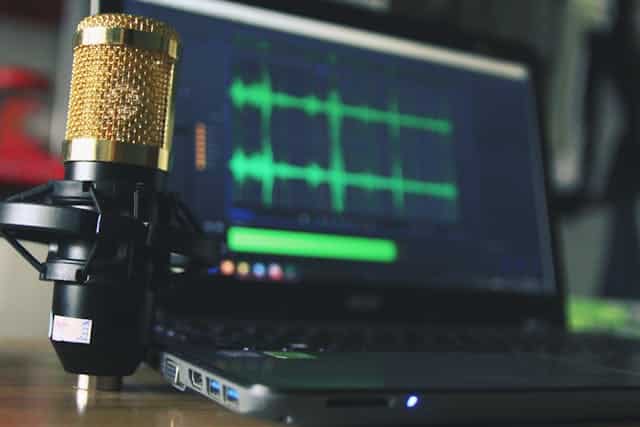Music production basics is now a hot topic in the industry, because a lot of upcoming artists are now keeping their focus mainly on how to start making beats at home.
With the right tools and knowledge, anyone can create great music from their bedroom. I will guide you through the essential steps to begin your music production journey.
Whether you want to produce Afrobeats, hip-hop, or pop, these tips will help you get started quickly and confidently.
Why Learn Music Production Basics?
First of all, understanding music production basics helps you bring your musical ideas to life. Instead of waiting for others to create beats, you can make your own unique sound.
Also, producing music at home saves money and gives you full control over your creative process. Many famous artists like, Post Malone and Billie Eilish, started by making beats in their bedrooms, proving that you don’t need a big studio to succeed.
Basic Essential Equipment You Need to Start Music Production
You need some basic equipment to start making beats at home. Luckily, you don’t need expensive gear to begin.
Computer or Laptop: A reliable computer is essential. It should have enough memory and processing power to run music software smoothly.
Digital Audio Workstation (DAW): This is the software where you create and arrange your music. Popular DAWs include FL Studio, Ableton Live, and GarageBand. Many DAWs offer free trials or beginner versions.
MIDI Controller: A MIDI keyboard or pad controller helps you play melodies and drum patterns easily.
Headphones or Studio Monitors: Good sound quality is important. Start with a decent pair of headphones or affordable studio monitors.
Audio Interface (Optional): If you want to record vocals or instruments, an audio interface connects microphones and instruments to your computer.
You can also check out free virtual instruments like Spitfire LABS, Dexed, or TDR Nova EQ for budget-friendly sound design tools.
Learn the Basics of Your DAW
After setting up your equipment, the next step is to learn how to use your DAW. Start by exploring its interface and basic functions like:
Adding and arranging tracks.
Using virtual instruments and drum kits.
Applying effects like reverb and delay.
Editing and mixing sounds.
Further, leverage free resources: YouTube tutorials like “FL Studio 12 Beginner’s Guide” or Ableton’s official Learn Music program support new producers
Many online tutorials and courses can help you master your chosen DAW. Practice regularly to get comfortable with the tools.
Genre-Based Production Tips
Depending on the genre you want to create, your production approach may differ. For instance:
Afrobeats: Focus on rhythmic drum patterns, log drums, and melodic synth lines.
Hip-hop: Center your beat around hard-hitting 808s, snappy snares, and loops or samples.
Pop: Prioritize catchy chord progressions, layered melodies, and polished transitions.
Learning the sound structure of each genre can help you build beats that not only sound good but also connect with fans of that style.
To sharpen your skills faster, challenge yourself to recreate parts of beats you admire. Reverse-engineering can help you understand drum placement, melody structure, and mixing techniques.
Start Creating Your First Beat
Now, it’s time to create your first beat! Begin with a simple drum pattern. Most beats start with a kick, snare, and hi-hat rhythm.
Once you have a drum groove, add basslines and melodies using your MIDI controller or virtual instruments. Experiment with different sounds and rhythms until you find something you like.
Back then, a producer friend of mine started by sampling field recordings, layering them under his beats. The outcome gave a unique texture and inspired experimentation.
Tips to Improve Your Beats
Furthermore, here are some tips to make your beats sound better:
Keep your rhythm tight and consistent.
Use layers to add depth to your sounds.
Don’t overcrowd your beat-leave space for vocals.
Listen to your favorite songs and try to recreate parts.
Get feedback from friends or online music communities.
Common Beginner Mistakes to Avoid
Learning also means knowing what not to do. Watch out for these early-stage mistakes:
Adding too many sounds and cluttering the mix.
Ignoring EQ and volume leveling.
Over-relying on pre-made loops without editing.
Forgetting to save your projects in organized folders.
Mixing with cheap speakers instead of reference headphones.
Avoiding these pitfalls keeps your workflow clean and your beats professional.
Practice Routine That Builds Skills
When my friend began, he used to set a daily 30-minute “beat challenge”. Over time, this small habit improved his skills more than long sessions ever did.
Here’s a simple weekly routine you can adopt:
Moday: Watch a tutorial and take notes.
Tuesday: Recreate a simple beat from a favorite song.
Wednesday: Make a new beat using just five sounds.
Thursday: Try a new plugin or instrument.
Friday: Collaborate with a friend or post for feedback.
Saturday: Remix an old beat.
Sunday: Rest + listen to producers like Sarz, Metro Boomin, or Tems’ engineer for inspiration.
Selling Your Beats Online
Once you feel more confident, explore ways to make money from your beats.
Platforms like BeatStars, Airbit, and even SoundCloud offer great spaces to promote and license your music to artists all over the world.
Creating a YouTube channel or TikTok page to showcase your beat-making process can also help build an audience and bring in sales.
In summary, music production basics: how to start making beats at home is easier than many people think. With a computer, DAW, and some practice, you can create amazing music from your own space.
When my friend began, He used to set a daily 30-minute “beat challenge”. Overtime, this small habit improved his skills more than long sessions ever did.
Remember, the key is to keep learning and experimenting. Soon, you’ll develop your unique sound and maybe even produce hits that the world will love.
READ ALSO
Utilizing TikTok for Music Promotion
Financial Planning Tips for Artists
Revenue Streams in Music Industry
Building Your Personal Brand as an Artist
Top Afrobeats Stars Nominated for 2025 American Music Awards
